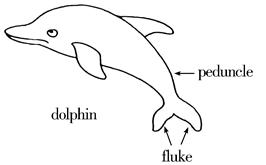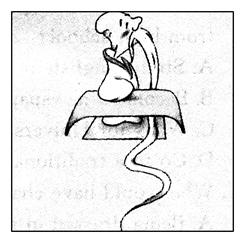
科目: 來源:不詳 題型:完形填空
| 小題1: |
|
| 小題2: |
|
| 小題3: |
|
| 小題4: |
|
| 小題5: |
|
| 小題6: |
|
| 小題7: |
|
| 小題8: |
|
| 小題9: |
|
| 小題10: |
|
| 小題11: |
|
| 小題12: |
|
| 小題13: |
|
| 小題14: |
|
| 小題15: |
|
| 小題16: |
|
| 小題17: |
|
| 小題18: |
|
| 小題19: |
|
| 小題20: |
|
查看答案和解析>>
科目: 來源:不詳 題型:閱讀理解
| A.was for people to view the world from another angle |
| B.resulted in narrow-mindedness of human beings |
| C.had the power to mirror personal glory and national values |
| D.was only a way to laugh at others to make oneself feel better |
| A.by comparison | B.by process | C.by example | D.by classification |
| A.The author is determined to face life with a sense of humor. |
| B.The author feels helpless and sad about getting older. |
| C.Never be the one who laughs at other people. |
| D.Chaplin wasn’t aware of being laughed at. |
查看答案和解析>>
科目: 來源:不詳 題型:閱讀理解

| A.physical build |
| B.potential ability |
| C.chance of survival |
| D.a(chǎn)daptation to the surroundings |
| A.let her recover faster |
| B.make her comfortable |
| C.a(chǎn)djust her way of swimming |
| D.help her perform better tricks |
| A.stick to their dreams |
| B.treat animals friendly |
| C.treasure what they have |
| D.face difficulties bravely |
查看答案和解析>>
科目: 來源:不詳 題型:完形填空
| 小題1: |
|
| 小題2: |
|
| 小題3: |
|
| 小題4: |
|
| 小題5: |
|
| 小題6: |
|
| 小題7: |
|
| 小題8: |
|
| 小題9: |
|
| 小題10: |
|
| 小題11: |
|
| 小題12: |
|
| 小題13: |
|
| 小題14: |
|
| 小題15: |
|
| 小題16: |
|
| 小題17: |
|
| 小題18: |
|
| A.closed | B.unlocked |
| C.kicked | D.knocked |
| 小題20: |
|
查看答案和解析>>
科目: 來源:不詳 題型:完形填空

| 小題1: |
|
| 小題2: |
|
| 小題3: |
|
| 小題4: |
|
| 小題5: |
|
| 小題6: |
|
| 小題7: |
|
| 小題8: |
|
| 小題9: |
|
| 小題10: |
|
| 小題11: |
|
| 小題12: |
|
| 小題13: |
|
| 小題14: |
|
| 小題15: |
|
| 小題16: |
|
| 小題17: |
|
| 小題18: |
|
| 小題19: |
|
| 小題20: |
|
查看答案和解析>>
科目: 來源:不詳 題型:閱讀理解
| A.true happiness lies in achieving wealth by fair means |
| B.big houses are people's most valued possessions |
| C.big houses can in a sense bring richness of life |
| D.true happiness comes from spiritual riches |
| A.however materially rich, they never seem to be satisfied |
| B.however materially rich, they remain spiritually poor |
| C.though their house is big, they prefer a simple life |
| D.though their house is big, it seems to be a cage |
| A.more money brings more happiness |
| B.a(chǎn)rt is needed to make your house beautiful |
| C.literature can enrich your spiritual life |
| D.sports contribute mainly to your physical fitness |
| A.House of Life | B.Secret of Wealth |
| C.Rest and Refreshment | D.Interest and Enthusiasm |
查看答案和解析>>
科目: 來源:不詳 題型:閱讀理解
| A.She knew the car drivers well. |
| B.She wanted to show kindness. |
| C.She hoped to please others. |
| D.She had seven tickets. |
| A.thought it was beautifully written |
| B.wanted to know what it really meant |
| C.decided to write it on a warehouse wall |
| D.wanted her husband to put it up in the classroom |
| A.Judy Foreman. |
| B.Natalie Smith. |
| C.Alice Johnson. |
| D.Anne Herbert. |
| A.Kindness and violence can change the world. |
| B.Kindness and violence can affect one’s behavior. |
| C.Kindness and violence can reproduce themselves. |
| D.Kindness and violence can shape one’s character. |
| A.People should practice random kindness to those in need. |
| B.People who receive kindness are likely to offer it to others. |
| C.People should practice random kindness to strangers they meet. |
| D.People who receive kindness are likely to pay it back to the giver. |
查看答案和解析>>
科目: 來源:不詳 題型:完形填空
| 小題1: |
|
| 小題2: |
|
| 小題3: |
|
| 小題4: |
|
| 小題5: |
|
| 小題6: |
|
| 小題7: |
|
| 小題8: |
|
| 小題9: |
|
| 小題10: |
|
| 小題11: |
|
| 小題12: |
|
查看答案和解析>>
科目: 來源:不詳 題型:閱讀理解
| A.making more money |
| B.taking more opportunities |
| C.reducing missed opportunities |
| D.weighing the choice of opportunities |
| A.spared for watching the match at home |
| B.taken to have dinner with friends |
| C.spent on the way to and from the match |
| D.saved from not going to watch the match |
| A.Opportunities you forget in decision-making. |
| B.Opportunities you give up for better ones. |
| C.Opportunities you miss accidentally. |
| D.Opportunities you make up for. |
查看答案和解析>>
科目: 來源:不詳 題型:完形填空
| 小題1: |
|
| 小題2: |
|
| 小題3: |
|
| 小題4: |
|
| 小題5: |
|
| 小題6: |
|
| 小題7: |
|
| 小題8: |
|
| 小題9: |
|
| 小題10: |
|
| 小題11: |
|
| 小題12: |
|
| 小題13: |
|
| 小題14: |
|
| 小題15: |
|
| 小題16: |
|
| 小題17: |
|
| 小題18: |
|
| 小題19: |
|
| 小題20: |
|
查看答案和解析>>
湖北省互聯(lián)網(wǎng)違法和不良信息舉報(bào)平臺(tái) | 網(wǎng)上有害信息舉報(bào)專區(qū) | 電信詐騙舉報(bào)專區(qū) | 涉歷史虛無主義有害信息舉報(bào)專區(qū) | 涉企侵權(quán)舉報(bào)專區(qū)
違法和不良信息舉報(bào)電話:027-86699610 舉報(bào)郵箱:58377363@163.com